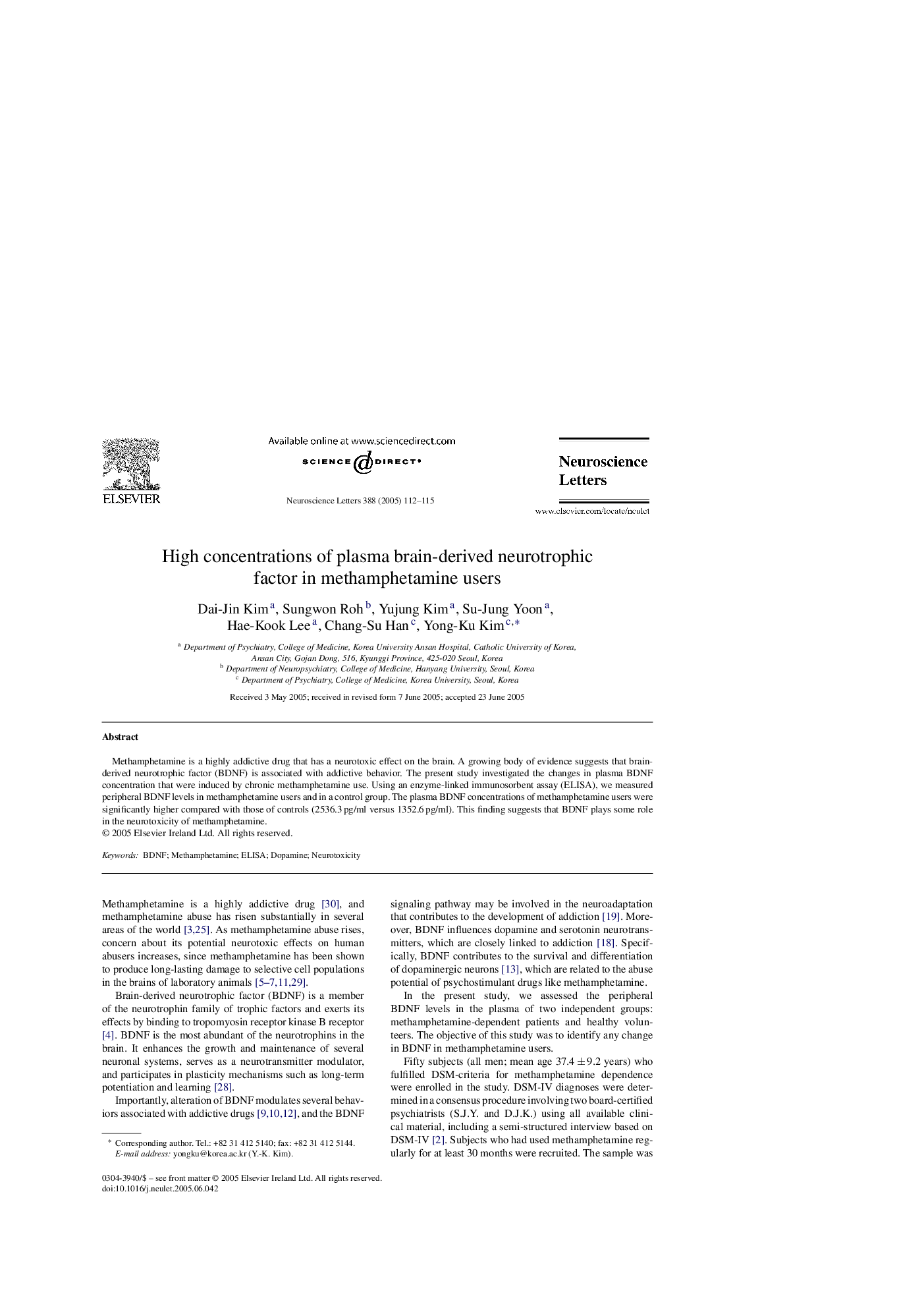| Article ID | Journal | Published Year | Pages | File Type |
|---|---|---|---|---|
| 9428953 | Neuroscience Letters | 2005 | 4 Pages |
Abstract
Methamphetamine is a highly addictive drug that has a neurotoxic effect on the brain. A growing body of evidence suggests that brain-derived neurotrophic factor (BDNF) is associated with addictive behavior. The present study investigated the changes in plasma BDNF concentration that were induced by chronic methamphetamine use. Using an enzyme-linked immunosorbent assay (ELISA), we measured peripheral BDNF levels in methamphetamine users and in a control group. The plasma BDNF concentrations of methamphetamine users were significantly higher compared with those of controls (2536.3Â pg/ml versus 1352.6Â pg/ml). This finding suggests that BDNF plays some role in the neurotoxicity of methamphetamine.
Related Topics
Life Sciences
Neuroscience
Neuroscience (General)
Authors
Dai-Jin Kim, Sungwon Roh, Yujung Kim, Su-Jung Yoon, Hae-Kook Lee, Chang-Su Han, Yong-Ku Kim,
